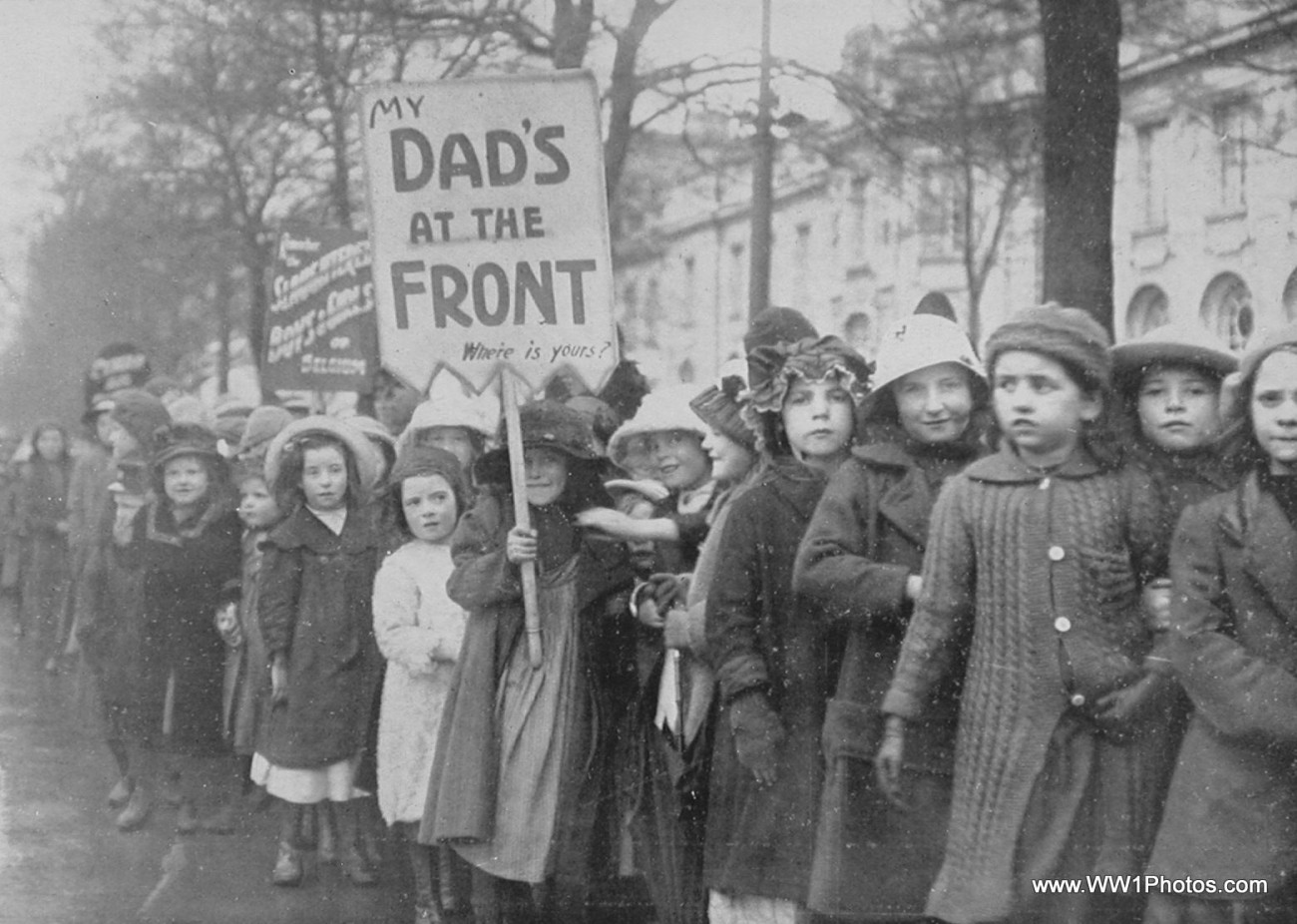
In Flanders fields, the poppies blow
Between the crosses, row on row,
That mark our place; and in the sky
The larks, still bravely singing, fly
Scarce heard amid the guns below.
We are the Dead. Short days ago
We lived, felt dawn, saw sunset glow,
Loved and were loved, and now we lie,
In Flanders fields.
Take up our quarrel with the foe:
To you from failing hands we throw
The torch; be yours to hold it high.
If ye break faith with us who die
We shall not sleep, though poppies grow
In Flanders fields.
It is impossible to fully appreciate the psycho-social impact of The First World War without personally possessing the Victorian mindset of contemporaries going into it, but I will do my best to set the scene.
The German Empire had only come into existence 43 years prior, as recent then as Mad Max 2 is today. Many were still used to thinking of Germany as a geographic region like The Balkans, rather than a single, unified state.
The last major conflict our Empire had been involved in was the Second Boer War, which claimed the lives of over 20,000 British soldiers in three years of bitter struggle, a staggering toll for the period - more even than the Crimean War - and which left the country reeling in disbelief. Little did they know that in ten years’ time, that same number would die in but a single day of fighting the next one.
Even in all the Napoleonic Wars, only around 30,000 Tommie’s were actually killed in action. Granted, many more has perished due to disease and the harsh conditions of military life, but this was par for the course in that era.
The point I’m attempting to convey is that when considering the First World War, we are dealing with a completely different order of magnitude. It is not for no reason that, even while ongoing, people on all sides unironically referred to it as The War To End All Wars.
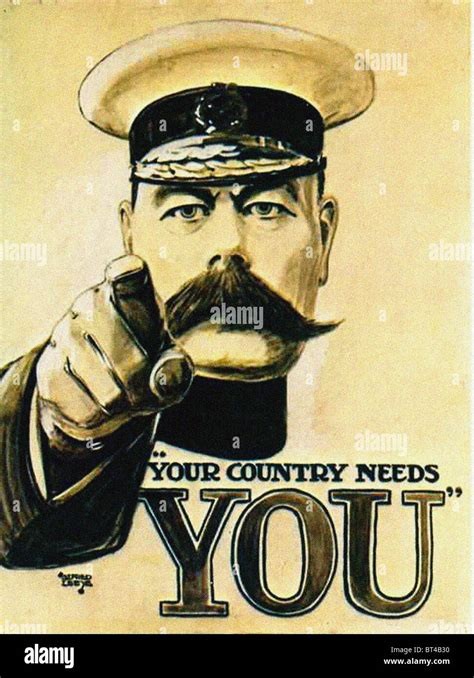
The First World War… The Great War - was a conflict unlike anything the world had ever seen before. We went from sabre-drawn cavalry charges across the Transvaal plateau to submarines, tanks and fighter planes in little more than a decade. With the notable exception of atomic bombs, everything in the Second World War had already been experienced in the first.
The poem in the epigraph was written by Lieutenant-Colonel John McCrae in 1915. Born into a military family, and a patriot, he had joined the Guelph Highland Cadet Corps at age 14, being awarded a prize as the best cadet in Ontario in 1887. He would then serve in the Canadian Militia throughout his adult life, even as he trained and practiced as a medical doctor.
When Britain declared war on Germany, Canada, as a dominion of the British Empire, was automatically at war as well. McCrae promptly volunteered for service at age 41. He wrote to a friend - ‘I am really rather afraid, but more afraid to stay at home with my conscience.’
McCrae was appointed as Medical Officer of the 1st Brigade, Canadian Field Artillery. His friend and fellow militiaman, Lt. Alexis Helmer, was killed by counter-battery fire during the Second Battle of Ypres - and it was his burial that inspired the poem which quickly became famous.
McCrae was later ordered away from the artillery to establish No. 3 Canadian General Hospital, far behind the front lines, something he was deeply unhappy about, telling a friend at the time - ‘Allinson, all the goddamn doctors in the world will not win this bloody war: what we need is more and more fighting men.’
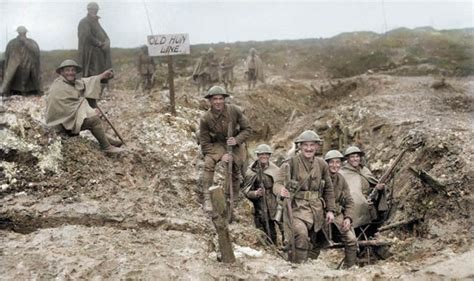
He would not get his wish however, and in January 1918, while still running the General Hospital, McCrae died of pneumococcus meningitis (no antibiotics back then) and was buried the next day. His British flag-draped coffin was borne on a gun carriage and the mourners – which included Gen. Sir Arthur Currie, commander of the Canadian Expeditionary Force – were preceded by McCrae's beloved charger, ‘Bonfire,’ with his boots reversed in the stirrups.
A large crowd of mourners gathered for McCrae's funeral. One held Bonfire. (Guelph Museums)
There is some speculation that, as a celebrated war poet, the Imperial General Staff wanted to keep him away from the trenches lest his death affect moral; or maybe they simply felt his skills as a doctor were more valuable behind the front lines than on them. What we know for certain is that McCrae died a hero every bit as much as those who fell in no-man’s land, and he believed in the legitimacy, justifiability and honour of the war until his final pneumonic breath.
It is impossible to say for sure what McCrae thought of his fellow war poets who felt differently to himself about the war, but we can hazard a guess that he would not have looked too kindly on those who versified against it.
The most celebrated of them all, and bane of GSCE students nationwide, is Wilfred Owen. Arguably his poem of greatest acclaim, composed in 1917 but published posthumously in 1920, is ‘Duce et decorum Est’. The title is based on a line from the Ancient Roman poet, Horace - Dulce et decorum est pro patria mori - (lit. It is sweet and fitting to die for one's country) something Owen describes as ‘The old lie’ in his final stanza.
Wilfred Owen can be forgiven to failing to see the sweetness of chocking to death in agony as poisonous gas burns one’s eyes and lungs to an acidic mush, but I suspect Horace was all too aware of the horrors involved in warfare, living when he did, and had taken this into account. His sights, like McCrae’s, were set on a higher plane, perceiving the wood composed of the broken and burning trees.
It is simply accepting reality for what it is. Tribes that are not willing to sacrifice their young men in its own defence will forever be the slaves of those that are. We are the descendants of those that are – both genetically and culturally.
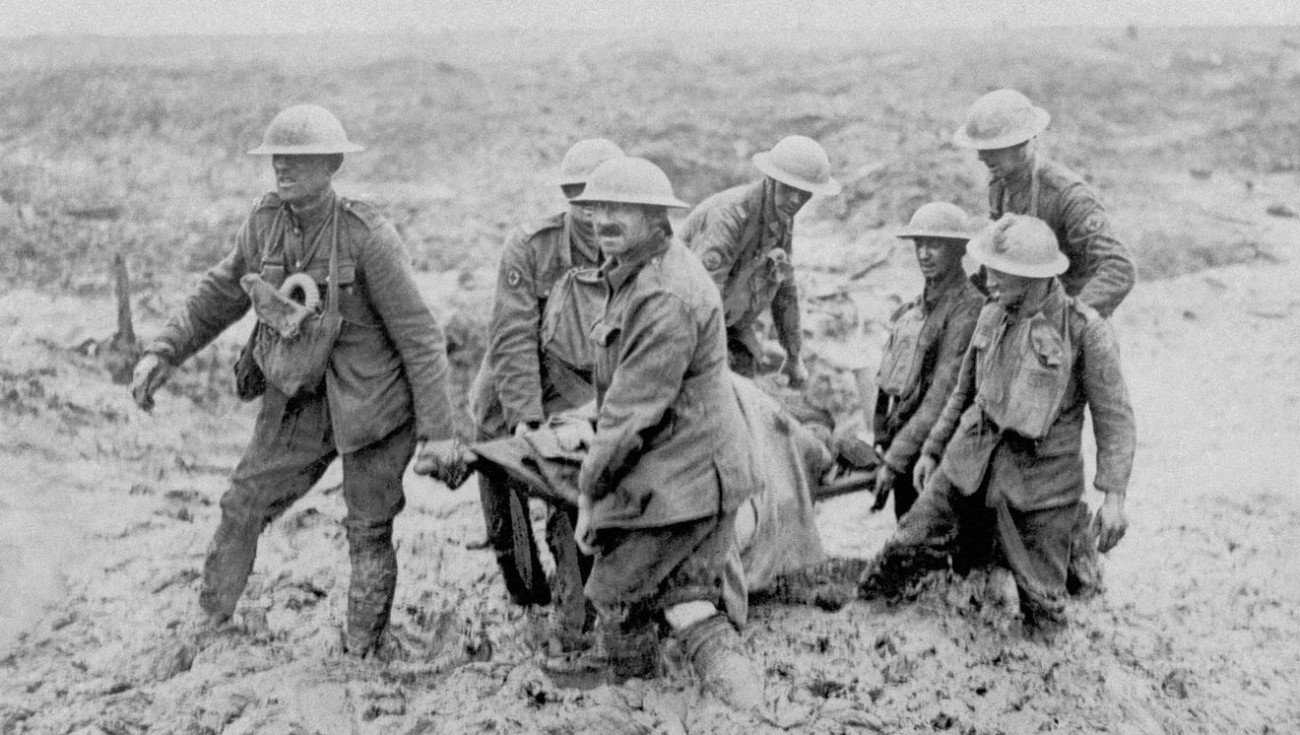
Biologically, men have a much higher innate risk-threshold than women, a psychological finding consistent in all demographics worldwide. An average man and woman will look at the same situation, and the man will say - ‘Yeah I could probably do that’ - while the woman will say - ‘No, no, no, what are you talking about? That’s far too dangerous!’
A core part of masculine virtue is confidence in the face of risk. From a purely evolutionary standpoint, men are kinda disposable. If a tribe loses half its adult men in a battle or hunting accident, it can recover to the same population within a single generation. After all, it only takes one man to sire potentially unlimited numbers of offspring in a single year. Women on the other hand, can only have one baby in a year, occasionally slightly more in the case of multiple-births.
Thus, fertile-aged women are, as they have ever been, the most valuable resource any tribe possesses. Lose half of them for some reason or another, and it will take multiple generations to recover, if it ever does.
If you were designing a tribe, you would want the women and children of to be running away from threats, as much as you’d want the men to be running towards them, for a tribe to have the greatest probability of survival and success in any given environment.
This fundamental truth has influenced the sexual dimorphism of human psychology in profound ways. The lower risk threshold in women is likely the primary reason they have such a greater probability of suffering from anxiety and depression - the more so in the peri-natal period, when they are even more vulnerable and the risk-threshold is set even lower. It is also undoubtably the reason why the prevalence of morbidity and mortality is so much higher among men everywhere on Earth.
Culturally too, tribes would evolve social structures to support and encourage their young men to face such horrors. The commemorating of veterans and war dead, the honourification of heroic deeds on the battlefield. As an extension of culture, many religions evolved to help buttress this dynamic with the assumption of everlasting life after death. Some would even evolve memetic mutations that the only sure way to guarantee such a paradise is to die in tribal combat, such as Norse Paganism or Islam.
On the other side of the risk/benefit scale – the fear of missing out on such rewards, along with the social stigmas against cowardice, desertion and treachery, keep any healthy tribe’s young men eager and willing sacrifice themselves for the good of the whole.
Yet all of these bio-psycho-social points could be argued against if the cause of conflict itself was not justified, as Wilfred Owen seems to have believed. Were he alive today I would sorely like to ask him: What other option did we have as a nation?
Having pledged our sacred honour to defend the neutrality of Belgium, a pledge Germany herself had made alongside us, reneging on such an oath would forever blacken our reputation around the world. What would our other allies or dominions think if we could so easily break our promise?
Rebellions would have sprouted like mushrooms after an autumn rain - It would have been the end of the British Empire for certain.
Speaking of justifications, one cannot write an article like this without mentioning the Rape of Belgium.
Oh Demosthenes, I hear you sigh with a wry smile, don’t you know that was all just wartime propaganda?
Au contraire. Did the Rape of Belgium take place the way Allied propaganda said it did. No, it didn’t - it was exaggerated, it was made to be larger than life to make the Germans out to be the true Hunnic enemy that must be quashed no matter the cost, else they go on to destroy civilisation itself. Now was that the case? No, of course it wasn’t the case. Yet that does not mean the Kaiserreich was benevolent, nor does it mean they were behaving themselves in Belgium.
The Rape of Belgium happened. It happened very much so. Sixty thousand Belgian civilians died as a result of the German occupation, due to anything from the seizure of food and the burning of villages, to merely being lined up against a wall and shot. 120,000 Belgian men were sent into forced labour camps, to fuel the German war machine that was destroying their own homeland.
Did German soldiers really decorate the roads with crucified Belgian farmers? No, no they didn’t. But they did murder them by the thousands. Did they really eat babies in a frenzy of demonic depravity? No, but they did bayonet them, and shoot them. Did they really hang the bodies of mutilated Belgian women they’d raped from streetlamp? There is no strong evidence suggests so, but they did simply rape them en masse.
Yet even if the Germans had not set one foot on Belgian soil, and invaded France directly, I believe we would have been justified in declaring war regardless, despite having no legal obligation to do so.
Again, what choice was there?
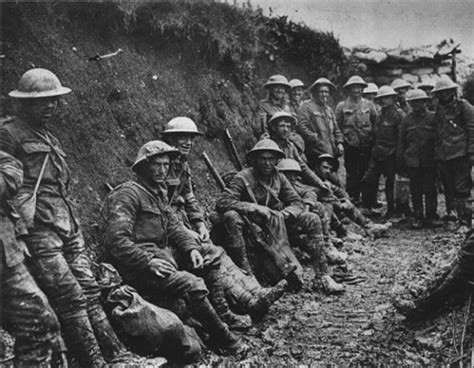
The ambitions of Germany could no longer be contained by the status quo. They possessed the most powerful land army in human history at the time, and they knew it. Having been relative late-comers to industrialisation, Germany had not undergone the century of trial-and-error that Britain and France had, instead learning from our mistakes and swiftly overtaking the GDP of all but America by 1913.
The unexpectedly valiant defiance of tiny Belgium may have slowed the German juggernaut somewhat, but it was the British Expeditionary Force standing in their path on the far side that truly threw a spanner in Schlieffen’s meticulous plan.
On the outbreak of war Britain had, pound for pound, by far the best army, composed entirely of professional, volunteer soldiers recently blooded in South Africa. Unfortunately, there were not many pounds to go around compared to the vast conscript legions of the continent. Britain had a standing army of around 247,000 men when war was declared, meanwhile Germany had 4.5 million soldiers ready for mobilisation, the French 3.5 million.
The French understandably considered the expeditionary force we dispatched in their aid as little more than a ‘nice-to-have’ - so sent them off to the quiet northern flank, while they did the real fighting in the East, reconquering the lost territories of Alsace and Lorraine. Their main desperation for Britain as an ally was for the defensive and offensive capability of her Navy.
Yet little did the French know that this one, seemingly trivial, deployment would change the entire course of the war, and indeed, of history itself. For it was that very northern flank where the Germans had secretly concentrated the vast majority of her strength, in a titanic push through the Low Countries to bulldoze their way for Paris, and onwards to encircle the French Armies pinned in the East.
The French General Staff’s promotion of cavalier aggression played perfectly into their hands, as the French fell headlong into the death-trap set for them - fixed defences of pre-sighted artillery and machine gun batteries, with overlapping fields of fire. Hundreds of thousands of France’s best men were slaughtered in the first few weeks fighting during what became known as The Battle of the Frontiers, and their shattered armies were sent reeling in disarray.
Napoleon had overturned the cautious military zeitgeist of his age and proved that aggression and initiative won battles. That mindset had since become established as the new zeitgeist amongst officer corps in all major European powers - as it would remain until the unnecessary deaths of millions forced them to accept that defence had usurped the throne once more. Military technology had simply advanced to such a degree during the hundred years of Pax Brittanica, while no one was paying attention, that ordering out-and-out infantry charges became tantamount to mass-murder.
Though an element of that offensive mindset would never fully dissipate, and the Allies continued developing new strategies and technology for successful offensive combat right to the very end; resulting in such innovations as the tank, rolling barrages and combined arms, which would ultimately result in their final victory.
Imagine for a moment that Britain had not declared war, and left the continental powers to hash it out amongst themselves. There is a good case to be made that without the BEF holding the Allied left flank, the Teutonic hordes would have smashed their way through to Paris, encircled the French armies (as they’d done in the Franco-Prussian war forty years earlier) and forced France’s surrender within a matter of months, before turning their full attention on their true, ancient nemesis, Russia.
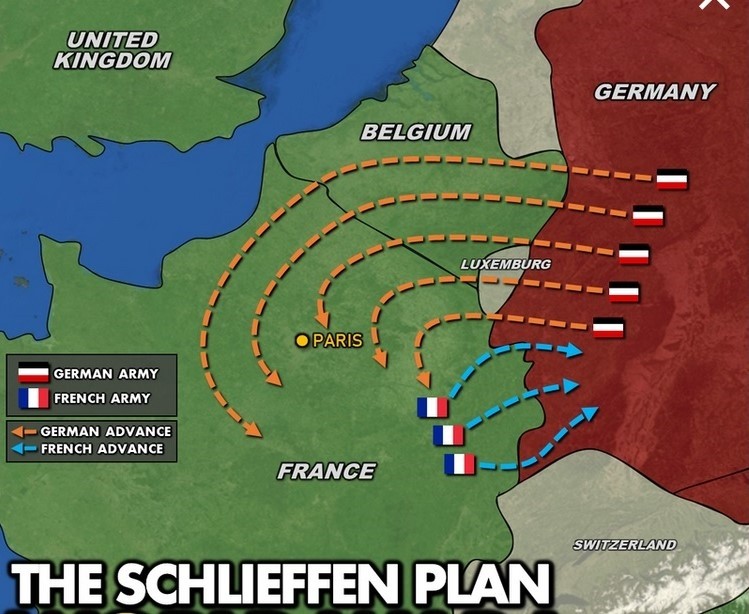
The German Empire would shatter the Russian one a few years later in any case, even with one hand shackled behind their back, so it’s safe to assume they would have done so sooner still without an entire second front to contend with. Especially when one considers that Italy, ever weathervane, was highly unlikely to defect in such circumstances, as they would do in reality when it looked like the tide had turned against The Axis.
Thus, the Russians would have been left to face the combined might of the German, Austro-Hungarian and Ottoman empires alone. Tsar Nicholas II would almost certainly have sued for peace with his cousin William at any cost the moment France fell. Whether the Kaiser, or more crucially his General Staff, would have accepted this or forged ahead in their quest to eliminate the Eastern menace once and for all, is another question. Though my money’s on the latter.
In either case, Germany would then have attained her ultimate ambition of becoming Masters of Europe, with the Prussian King assuming his destined place as the most powerful ruler in the world. They would have been appreciative of Britain for staying out of the fray, certainly, but assumed it was only because we knew what was good for us, and had finally accepted our diminished position in global affairs - playing second fiddle to the new star of the show, Germany.
We can deduce from the humiliating Treaty of Brest-Litovsk in the East what the German’s had in mind after the war’s conclusion in the West. Russia was forced to cede a million square miles of territory - a third of the former empire's population and over half their industrial resources, including almost all their coalfields. A supplementary protocol required Russia to pay Germany war reparations of six billion Rubles, both in gold and in goods, approximately $269 billion USD today.
It is therefore reasonable to believe that after being defeated, the French Third Republic would have been stripped of all her colonies and likely huge swathes of France proper, especially her Northeastern industrial core - the early possession of which proved so vital in sustaining the German armed forces throughout the long years of war.
The kingdoms of Belgium, the Netherlands and even of Denmark would have likely been incorporated within the German Empire as well, thought at a much lesser status than the constituent, Germanophone kingdoms of Bavaria, Saxony, Württemberg and naturally of Prussia - whose royalty would continue to be Emperors over them all.
With access to such vast industrial and agricultural capacity, as well as countless new dockyards, the German Navy would soon have far outstripped even that of Britannia herself. It is doubtful we would ‘be speaking German now’ as the old saying goes, for an amphibious invasion of our island fortress would have likely always been more hassle than it’s worth; but with Germania now ruling the seas, that realistic threat alone would have been enough to keep the meddlesome Engländers contained, as The German Empire set about consolidating and expanding its latest conquests, both in Europe and around the planet.
The English speaking peoples of the New World would thence have been tasked with carrying the standard of liberty onwards. Yet the mounting menace and aggression of this new global superpower would always be there in the background giving them pause.
With German Jews still fully enmeshed in the scientific hierarchy of the Second Reich, it is perfectly plausible that Imperial Germany, with their Austro-Hungarian pet (by now in possession of most, if not all of Southeastern Europe) would have gone on to develop their own Manhattan Project, and be the first to acquire nuclear weapons - though likely in the 50s or 60s rather than the 40s. From that point on it is anyone’s guess what trajectory human history would have taken, though I very much doubt it would have been for the better.
No. We had one chance to prevent ourselves becoming free men no longer, and it was in August 1914. That was the best chance we were ever going to get, throwing in our lot with the French and Russian Empires; fighting alongside our recent enemies to slay our recent ally - turned monstrous and rapacious foe. A fact many at the time were fully and soberly aware of.
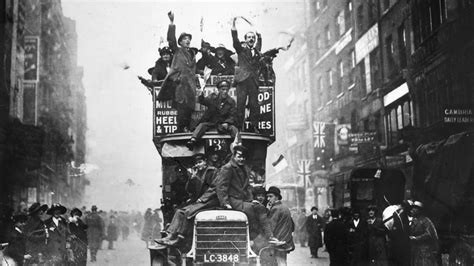
We dishonour those men by labelling their war ‘pointless’ or ‘futile’. For in truth it was neither of those things. On the contrary, it was arguably among the most meaningful and worthwhile endeavours imaginable. And ultimately, they did it for us - and for humanity itself - as much as for themselves.
When first published in 1954, many inferred that J. R. R. Tolkien had based The Lord of The Rings on World War Two, something he always denied. Tolkien did however, eventually admit that many of its themes were based on World War One: the profound symbiotic brotherhood between middle-class officers (Frodo) and salt-of-the-earth Tommie’s from the shires (Sam) – The ‘Free Men of the West’ rising in defiance against an unstoppable evil emerging from the East - all motifs drawn from his personal experience in the trenches of Flanders fighting for the Lancashire Fusiliers.
One of the most poignant quotes from the novel, and my personal favourite, is the following: -
“I wish it need not have happened in my time,” said Frodo.
“So do I,” said Gandalf, “and so do all who live to see such times. But that is not for them to decide. All we have to decide is what to do with the time that is given us.”
Were mistakes made in the Great War’s messy aftermath? Of course there were. Was there an even larger global cataclysm a mere twenty years later? Yes there was. But historians who understand these things far better than I, have looked at the rematch and concluded that even in our darkest hour, Germany had a relatively low probability of winning the war without tremendous good fortune.
Nazi ideology, by its very nature, was always going to push prospective allies into the arms of their rivals, e.g. Jews and anti-communists. They were going to take on the Russian bear sooner or later - by then a very different animal to the one facing them a generation earlier - and sooner or later the Russian bear and ‘General Winter’ was going to overcome them and crush The Third Reich into dust.
By contrast, The Second Reich had a more than decent chance of winning World War One, just so long as they did so quickly; and it actually took remarkable luck on our own side, as well as the indescribable determination and bravery of countless young men, to prevent them from doing so.
Think on that as you wear your poppy next month, and the next time you hear someone bemoan the pointlessness of their sacrifice. They could only decide what to do with the time that was given them, and they made the right choice.
However, it is true to say that something broke deep in the soul of Western Civilisation as a consequence of The Great War. So much was lost beyond the millions of human lives; cultural self-confidence, the hope of the enlightenment, and above all, the conviction and courage that comes from sincerely believed moral superiority.
I feel Churchill put this observation best in The World Crisis: The Aftermath, published in 1929: -
The pageant of victory unrolled itself before the eyes of the British nation. All the Emperors and Kings with whom we had warred had been dethroned, and all their valiant armies were shattered to pieces. The terrible enemy whose might and craft had so long threatened our existence, whose force had destroyed the flower of the British nation, annihilated the Russian Empire and left all our Allies except the United States at the last gasp, lay prostrate at the mercy of the conquerors.
The ordeal was over. The peril had been warded off. The slaughter and the sacrifices had not been in vain and were at an end; and the overstrained people in the hour of deliverance gave themselves up for a space to the sensations of triumph. Church and State united in solemn thanksgiving. The whole land made holiday. Triple avenues of captured cannon lined the Mall. Every street was thronged with jubilant men and women. All classes were mingled in universal rejoicing. Feasting, music and illuminations turned the shrouded nights of war into a blazing day. The vast crowds were convulsed with emotions beyond expression; and in Trafalgar Square the joy of the London revellers left enduring marks upon the granite plinth of Nelson’s column.
Who shall grudge or mock these overpowering entrancements? Every Allied nation shared them. Every victorious capital or city in the five continents reproduced in its own fashion the scenes and sounds of London.
These hours were brief, their memory fleeting; they passed as suddenly as they had begun. Too much blood had been spilt. Too much life-essence had been consumed. The gaps in every home were too wide and empty. The shock of an awakening and the sense of disillusion followed swiftly upon the poor rejoicings with which hundreds of millions saluted the achievement of their hearts’ desire.
There still remained the satisfactions of safety assured, of peace restored, of honour preserved, of the comforts of fruitful industry, of the home-coming of the soldiers; but these were in the background; and with them all there mingled the ache for those who would never come home.
Disillusion is the world. The idea of Christendom, though fallen out of favour by academics at the start of the 20th Century while nation states and secularism rose all about them, was still yet a significant component of the European psyche. That there was a unifying bond of kinship between the Christians of Europe, which went beyond language and ethnicity, was seen as a given. The Great War crucified that concept once and for all - though one could just as easily argue it was a product of Christendom’s demise as much as its cause.
The century since has been a continuous struggle to put something in gaping vacuum Christendom left behind. Communism attempted to implement such unity with ruthless inclusion, while Fascism tried doing the same via ruthless exclusion. The latter experiment drowned in an ocean of blood, the former bled to death by a thousand cuts. The last man standing thus became the capitalist liberalism espoused by the Anglo-Americans.
Yet something is still missing, you can feel it all around you, a sense of directionless, purposeless ennui. Ethnic minorities, now living in what was once called Christendom, have it easier; with some reverting to ethno-centric tribalism, à la Black Lives Matter - while religious minorities, still in possession of supreme self-confidence and moral conviction, have congealed into tribes-within-tribes, à la Muslims.
For the native populations however, abandoned of their own civilisational inheritance, finding that same sense of belonging and purpose is a far greater struggle - the last thread of communal solidarity, national patriotism, are now become dirty words. Many have discovered that yearned-for sense of affiliation and meaning in environmental apocalypticism, others in third-wave feminism, while increasing numbers are finding it with the alphabet people. Symptoms of a wider disease all.
Homo-sapiens have ever been tribal animals and need to feel pride in who they are as a people as well as who they are as individuals. That is something all our leaders have forgotten. If not provided by the wider culture, they will look for it elsewhere, as we have seen.
The unique tradition of individual liberty in England dates all the way back to Magna Carta in 1215, but it was not until this was synergised in a new interpretation of Christianity, one that re-oriented one’s moral life towards personal responsibility and work-based ethics, that the English really took off. With English Protestants not only going on to create the greatest Empire the world has ever known, but also hacking their way though the wilderness of a brand new world to create our current global hyper-power.
Somehow the English stumbled upon a perfect union of Stoicism and Cyrenaicism, balancing out the cardinal virtues of justice and diligence with the theological virtues of hope and charity.
Alas, we now live in a post-Christian age. Where once they engaged in epic death-struggles for ideological supremacy, Bavarian Catholics and Thuringian Protestants now shrug at one another as fake asylum seekers self-detonate in their music festivals.
Charity without prudence is gullibility, the pursuit of happiness and profit without temperance is hedonism. Faith and hope were glue holding these competing virtues together, without them we are adrift in the storm without sail or rudder, at the mercy of any rogue wave and any pirate wishing to board us.
Self-enrichment and self-indulgence are not enough, not nearly enough. As Jesus of Nazareth said himself - ‘Man shall not live by bread alone.’
That is the position we find ourselves in today - we are a yin without a yang. All the bread we could ever need to survive, yet nothing to do but try to acquire more. Not dead by any means, but not fully alive either.
I cannot offer any solutions alas, I can hardly promote a return to Christianity being a sincere Atheist myself, but I can at least try to honestly identify the problem.
As the old adage goes - to slay a beast, you must first call it by its name.
Demosthenes of Hertfordshire